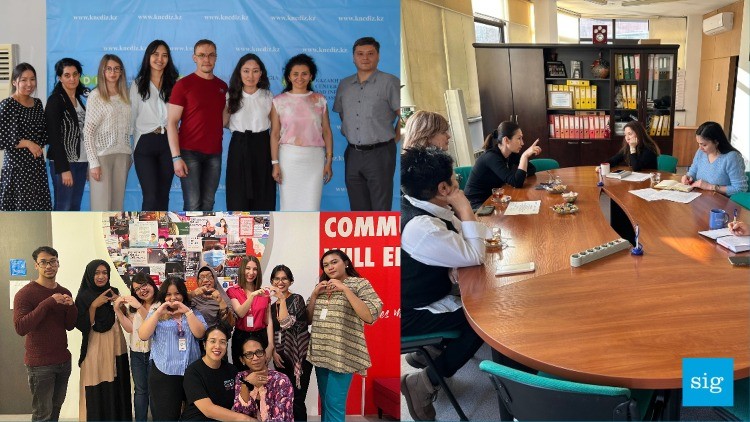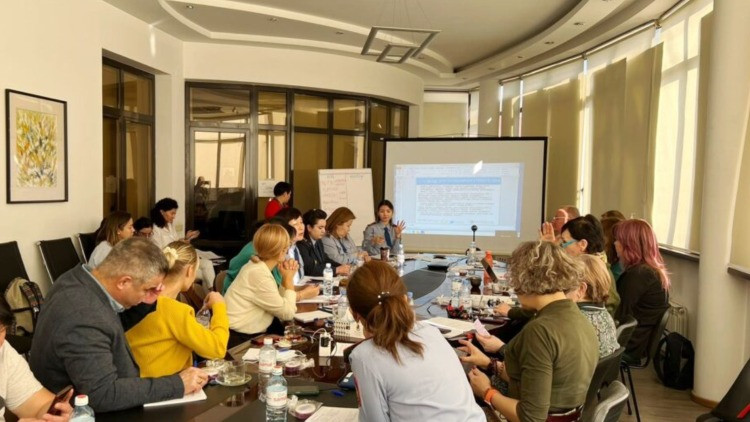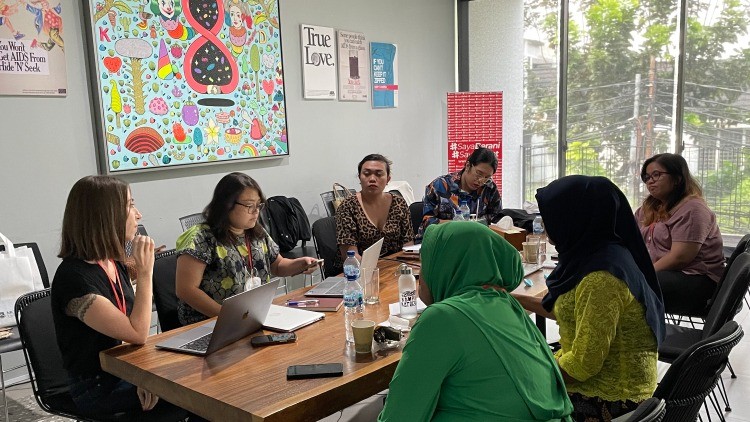Local teams are adapting WINGS to meet the specific needs of transgender and other marginalized women in Kazakhstan and Indonesia in order to reduce the rates of gender-based and intimate partner violence.

Throughout Central and Southeast Asia, marginalized communities of women face disproportionately high levels of gender-based violence (GBV), including intimate partner violence (IPV). These marginalized communities include women who use drugs, women who engage in sex work, women living with HIV, and transgender women. At the same time, these women lack access to life-saving services, especially transgender women, who are highly stigmatized and routinely denied access to legal protections and domestic violence services such as emergency shelters. Furthermore, a recent systematic review led by SIG found that, globally, there remains a real dearth of evidence-based interventions to prevent GBV for transgender women. To address this gap, researchers at the Center of Scientific and Practical Initiatives, Kazakhstan, and Monash University, Indonesia, affiliated with SIG and the Global Health Research Center of Central Asia (GHRCCA) have undertaken projects to address these issues in Kazakhstan and Indonesia.
In both countries, they are adapting and implementing the WINGS (Women Initiating New Goals of Safety) intervention. WINGS is an evidence-based model that is in use in five countries (Kyrgyzstan, Ukraine, Georgia, India, and Kazakhstan) to help address issues like those facing transgender women in Kazakhstan and Indonesia. The intervention consists of one to two individual sessions that are focused on raising awareness of and screening for IPV and GBV, safety planning, goal setting, enhancing motivation and support for addressing violence, and linking participants to supportive services that can address substance use, mental health issues, legal recourse, and other needs like food insecurity and housing instability. Originally developed for women who use drugs, WINGS has since been adapted for many other groups, including women who engage in sex work, women living with HIV, and women who are migrants or refugees.
The work in Kazakhstan, led by Dr. Assel Terlikbayeva and Sholpan Primbetova, MSSW, started in March 2022 with funding from the Sexual Violence Research Initiative (SVRI). While it is not exclusively focused on transgender women, the team anticipated that transgender women would reach out to their hotline seeking help and resources. However, many crisis centers and shelters are not ready to accept transgender women, and staff at the shelters did not have the training and skills to provide those women with the necessary services.

To ensure that transgender women received support of the same quality as other groups, training was provided for social workers, shelter employees, and police workers on how best to work with most at risk populations, including women who use drugs, women who engage in sex work, women living with HIV, and transgender women. They are working to update the intervention to cover the needs of transgender women. Researchers in Kazakhstan at the GHRCCA also support a shelter for women with HIV and who use drugs, and transgender persons in Almaty, so that participants can be referred there. The intervention was started by all groups of women from key focus populations on June 1, and more than 40 participants from marginalized communities have already enrolled and completed the intervention.
In Indonesia, the research of adapting and implementing WINGS, which is also funded by the Sexual Violence Research Initiative, is being led by Dr. Claudia Stoicescu at Monash University Indonesia in partnership with the Community Legal Aid Institute and transgender-led community-based organizations Indonesia Transgender Network, Sanggar Swara, and Kebaya Foundation. This project, which kicked off this month (June 2023), is the first time WINGS will have been adapted and evaluated in Southeast Asia, and the first time any evidence-based GBV prevention intervention has focused exclusively on transgender women.
As in Kazakhstan, transgender women in Indonesia face disproportionately high levels of GBV, as well as limited access to support and prevention services. This proposed research, which aims to reduce GBV and increase access to justice for transgender women in the most populous nation in Southeast Asia, will work to accomplish this through a community-based participatory approach that works closely with existing community-based organizations led by and serving transgender women to identify and address gaps in GBV, IPV, and legal aid services. Ultimately, the goal is to connect transgender women with the services they need and reduce the risk of GBV.

Over the next 18 months, the team will conduct qualitative research into the specific needs of transgender women in Indonesia, engaging with the community and key stakeholders in order to investigate the many factors that may impede or facilitate the intervention’s sustainability. With this information, they will work on developing an add-on access to justice model that may be integrated into WINGS. The additional module will serve to inform transgender women of their legal rights under existing laws, and enhance their access to legal assistance. The input of transgender women themselves will ensure that the module meets their needs and aligns with their lived experiences.
In both Central and Southeast Asia, transgender women are one of several marginalized populations at increased risk of intimate partner violence and other forms of gender-based violence. In both regions, limitations on their access to support services and legal assistance make it difficult to prevent GBV and provide assistance when it does occur. Teams from the Center of Scientific and Practical Initiatives and Monash University Indonesia, with the support of SIG and funders, are putting invaluable work to change that.
